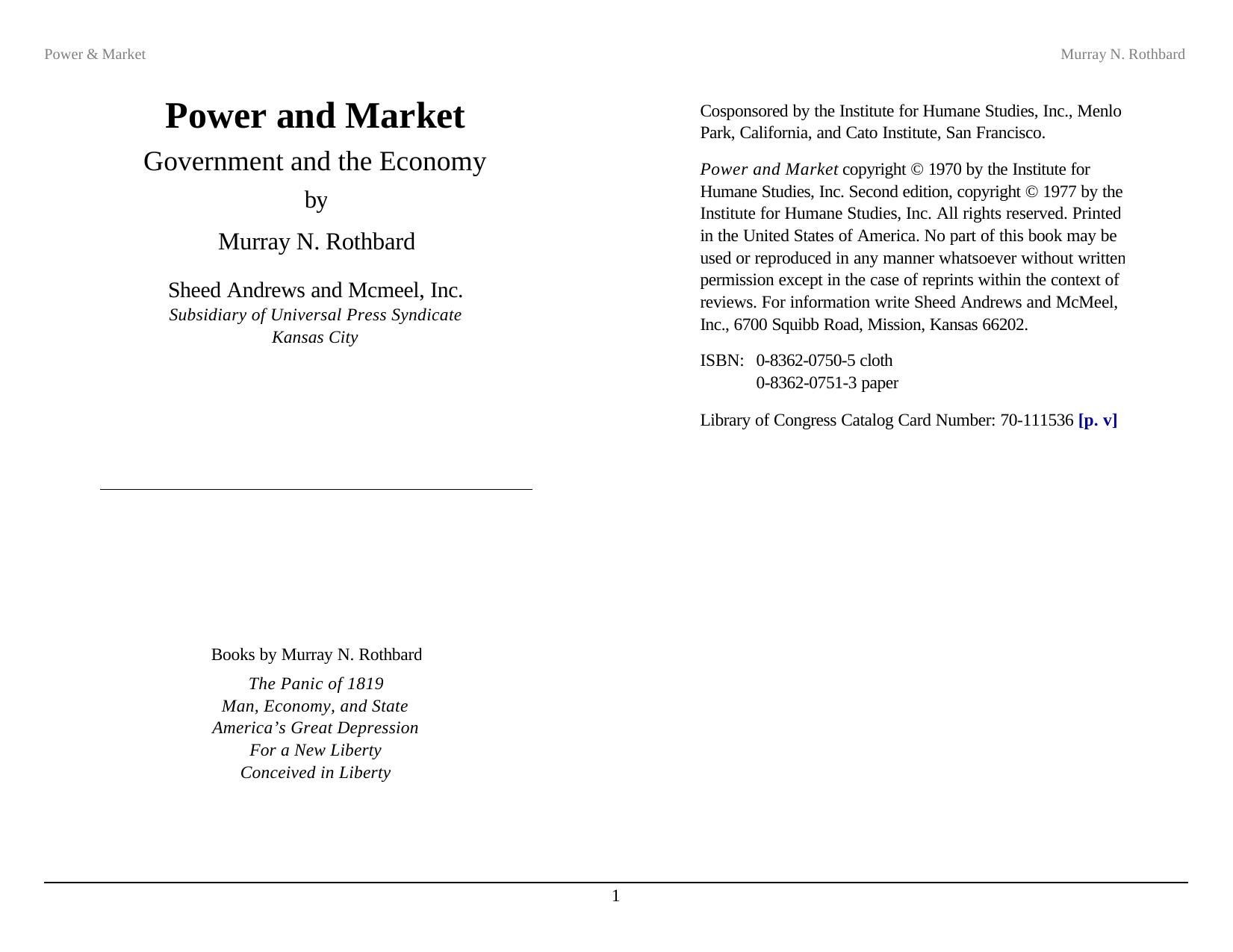Power & Market by Murray N. Rothbard

Author:Murray N. Rothbard
Language: eng
Format: epub, mobi, pdf
ISBN: 9781933550053
Publisher: Ludwig von Mises Institute
(b) The impossibility of uniformity
Aside from these considerations, the ideal of uniformity is impossible to achieve. Let us confine our further discussion of uniformity to income taxation, for two reasons: (1) because the vast bulk of our taxation is income taxation; and (2) because, as we have seen, most other taxes boil down to income taxes anyway. A tax on consumption ends largely as a tax on income at a lower rate.
There are two basic reasons why uniformity of income taxation is an impossible goal. The first stems from the very nature of the State. We have seen, when discussing Calhoun’s analysis, that the State must separate society into two classes, or castes: the taxpaying caste and the tax-consuming caste. The tax consumers consist of the full-time bureaucracy and politicians in power, as well as the groups which receive net subsidies, i.e., which receive more from the government than they pay to the government. These include the receivers of government contracts and of government expenditures on goods and services produced in the private sector. It is not always easy to detect the net subsidized in practice, but this caste can always be conceptually identified.
Thus, when the government levies a tax on private incomes, the money is shifted from private people to the government, and the government’s money, whether expended for government consumption of goods and services, for salaries to bureaucrats, or as subsidies to privileged groups, returns to be spent in the economic system. It is clear that the tax-expenditure level must distort the expenditure pattern of the market and shift productive resources away from the pattern desired by the producers and toward that desired by the privileged. This distortion takes place in proportion to the amount of taxation.
If, for example, the government taxes funds that would have been spent on automobiles and itself spends them on arms, the arms industry and, in the long run, the specific factors in the arms industry become net tax consumers, while a special loss is inflicted on the automobile industry and ultimately on the factors specific to that industry. It is because of these complex relationships that, as we have mentioned, the identification in practice of the net subsidized may be difficult.
One thing we know without difficulty, however. Bureaucrats are net tax consumers. As we pointed out above, bureaucrats cannot pay taxes. Hence, it is inherently impossible for bureaucrats to pay income taxes uniformly with everyone else. And therefore the ideal of uniform income taxation for all is an impossible goal. We repeat that the bureaucrat who receives $8,000 a year income and then hands $1,500 back to the government is engaging in a mere bookkeeping transaction of no economic importance (aside from the waste of paper and records involved). For he does not and cannot pay taxes; he simply receives $6,500 a year from the tax fund.
If it is impossible to tax income uniformly because of the nature of the tax process itself, the attempt to do so also confronts another insuperable difficulty, that of trying to arrive at a cogent definition of “income.
Download
Power & Market by Murray N. Rothbard.mobi
Power & Market by Murray N. Rothbard.pdf
This site does not store any files on its server. We only index and link to content provided by other sites. Please contact the content providers to delete copyright contents if any and email us, we'll remove relevant links or contents immediately.
The Secret History by Donna Tartt(19088)
The Social Justice Warrior Handbook by Lisa De Pasquale(12190)
Thirteen Reasons Why by Jay Asher(8909)
This Is How You Lose Her by Junot Diaz(6886)
Weapons of Math Destruction by Cathy O'Neil(6279)
Zero to One by Peter Thiel(5801)
Beartown by Fredrik Backman(5754)
The Myth of the Strong Leader by Archie Brown(5507)
The Fire Next Time by James Baldwin(5444)
How Democracies Die by Steven Levitsky & Daniel Ziblatt(5218)
Promise Me, Dad by Joe Biden(5153)
Stone's Rules by Roger Stone(5087)
A Higher Loyalty: Truth, Lies, and Leadership by James Comey(4962)
100 Deadly Skills by Clint Emerson(4925)
Rise and Kill First by Ronen Bergman(4788)
Secrecy World by Jake Bernstein(4753)
The David Icke Guide to the Global Conspiracy (and how to end it) by David Icke(4717)
The Farm by Tom Rob Smith(4507)
The Doomsday Machine by Daniel Ellsberg(4490)
